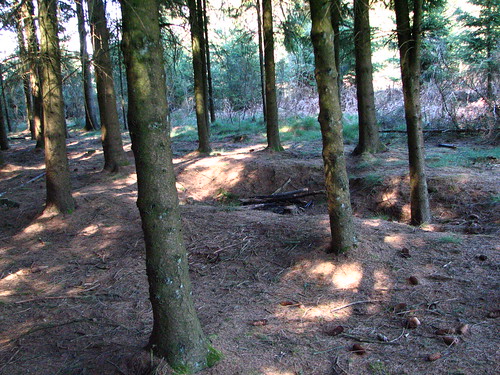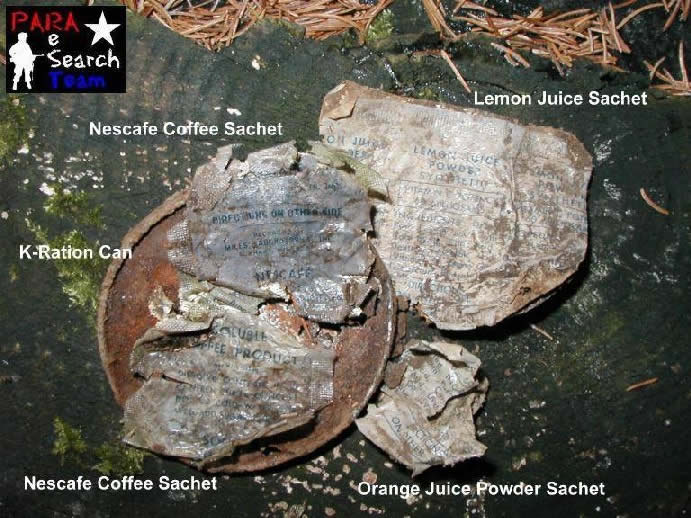cookie
I'll Lock Up
- Messages
- 5,927
- Location
- Sydney Australia
I was there winter of 2013. In Foy wood (made recently famous via Band of Brothers series) the fox holes and shell scrapes hand dug by the 101st are mostly still there !! Amazing!!!
Will try to dig photos out at some stage.
 Gustin Vintage Heavyweight Sweatshirt - Natural Rainbow Nep - $119 Rugged 14oz cotton that gets better with every wear.
Gustin Vintage Heavyweight Sweatshirt - Natural Rainbow Nep - $119 Rugged 14oz cotton that gets better with every wear.  Grant Stone Diesel Boot Dark Olive Chromexcel - #395 Goodyear welted, Horween Chromexcel, classic good looks.
Grant Stone Diesel Boot Dark Olive Chromexcel - #395 Goodyear welted, Horween Chromexcel, classic good looks.  Himel Bros. - The Ross Mk. 1 Leather Jacket Classic D-pocket motorcycle/aviator style jacket.
Himel Bros. - The Ross Mk. 1 Leather Jacket Classic D-pocket motorcycle/aviator style jacket. Yes, please do. I'd like to see those.
I get my hackles up whenever I hear or read about Patton "rescuing" the 101st. Don't ever ever say that in front of a 101st Vet - you'll get an earful. It's one of those monumental bull***t stories of WW2. Not one of the 101st ever felt the need to be 'rescued'.
I find the whole concept of the battle bemusing, as the Allied commanders certainly did. Firstly, it was made based upon erroneous assumptions, mainly on the part of AH.
Firstly, it was assumed that without his airpower the American GI couldn't fight. Second, that if the offensive was successful and Antwerp fell, that the Allies would lose the plot and beg for peace. Even if it had succeeded (it was the longest of long shots) in all likelihood the Allies would have regrouped and then hit upon the German flanks with a vengeance.
I have talked to several members of the 101 who were there, they all said after they found out that my father was with the 9th Troop Carrier Command, that the most beautiful sight of their lives was, when the clouds broke and the C-47s came flying over, with white parachutes coming out the side! They knew they had won the battle.
Shortly after the battle, he received a letter from his older brother- a 4-F who was working in the defense industry, giddy with all of the overtime pay he was receiving and stating that he hoped that the war would go on forever. Small wonder that later in life, some of his better friends were German immigrants who had been on the other side of that horrible conflict: he felt more of a bond with his former enemies than American civilians who'd never known that fight just to survive.
My late father said pretty much the same thing about his looking up to clear skies and seeing an armada of Flying Fortresses heading east: the most beautiful thing he ever saw.
50 plus years after the fact, he still commented about how the cold of that '44-'45 winter was the worst he'd ever experienced in his life. (Bear in mind that after the war, he was a career Chicago firefighter, so he was no stranger to brutal winters.) Shortly after the battle, he received a letter from his older brother- a 4-F who was working in the defense industry, giddy with all of the overtime pay he was receiving and stating that he hoped that the war would go on forever. Small wonder that later in life, some of his better friends were German immigrants who had been on the other side of that horrible conflict: he felt more of a bond with his former enemies than American civilians who'd never known that fight just to survive.






“The two of us were in the foxhole, and during the night, there was a German patrol that went by. They were 25 feet from our foxhole. As they were walking, you could hear them whispering and their feet crunching on the snow. We didn’t have any problem, but I told the lad, ‘Give me your grenades,’ which he did, and about a half-hour later, another German patrol went through.
“They were within 12 to 15 feet of our foxhole. I was ready to throw the grenades. I figured that would take out more Germans than shooting a rifle. I didn’t want to start anything. They walked right on by and didn’t see us or acted that way. The next day, I still hadn’t contacted our unit, and we were frozen. I said, ‘We can’t stay here.’ At 10 or 11 in the morning, no one had showed up.
“So we went out the way I thought we drove in and walked down the road and came to a fork, and I took a guess, and it was the right way. As the Good Lord would have it, a while later, I came across a line of GI trucks that were stopped. I knocked on the side door of the last truck and got the lad inside so he could warm up.”
Stainbrook continued farther up the convoy, hoping to find someone he knew, but exhaustion set in, and he asked the driver of another truck to let him in the cab to warm up.
“I told him I was with B Company, and we’d been out all night,” he recalls. “He said they were transporting food to B Company but had to stop because of shelling. I got a meal, and then I was taken to a first-aid station, and they took off my boots. My feet were black up to above my ankles.
“I can’t tell you how, but I was taken to a hospital in Paris and then evacuated to England. I don’t remember leaving the hospital. The only thing I recall is four prisoners of war putting me on a hospital ship. I stayed at the hospital about 2½ months and then returned to my outfit.”